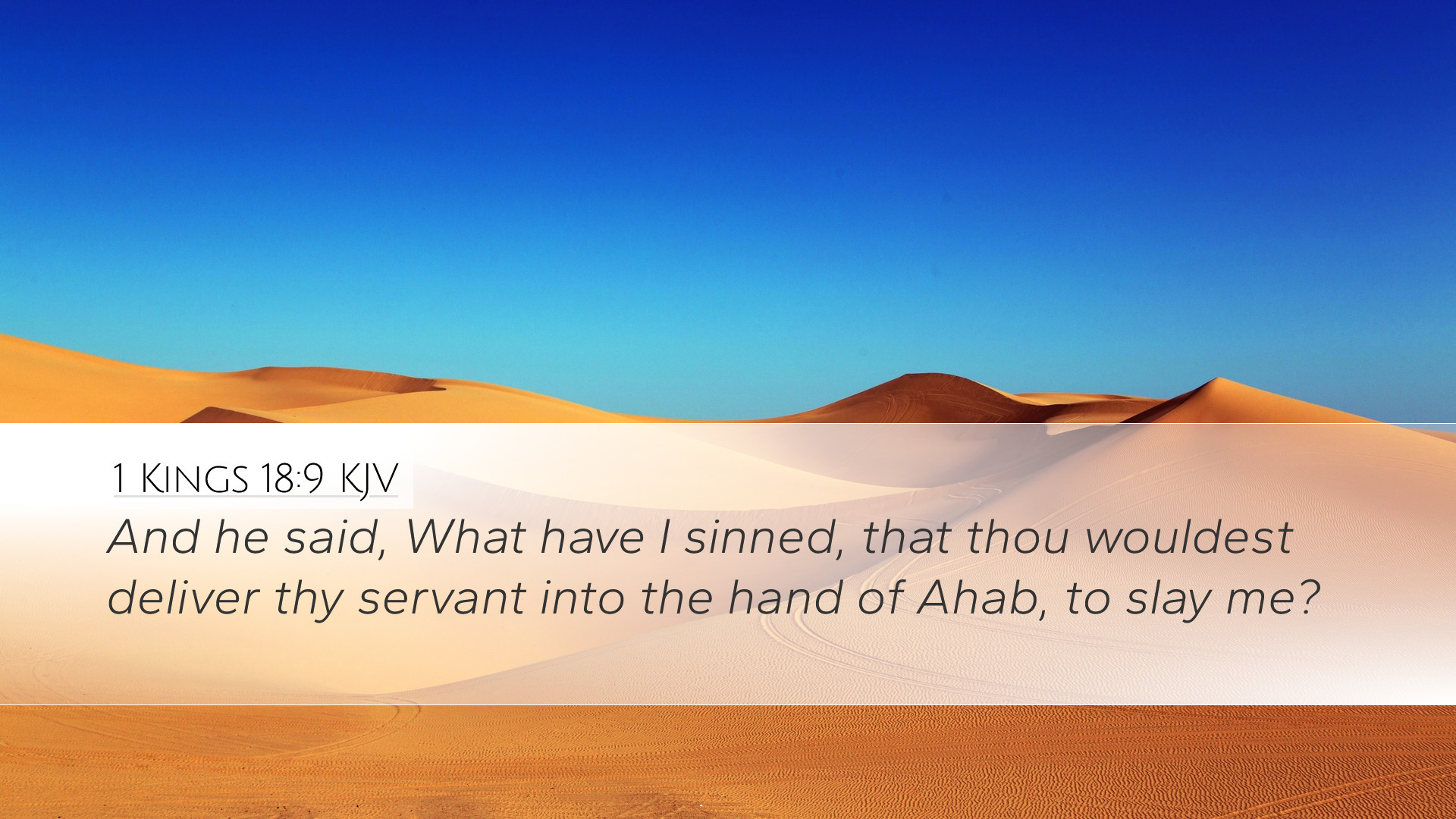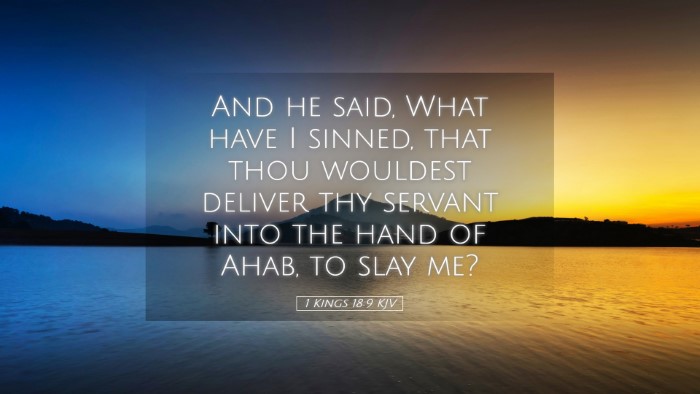Commentary on 1 Kings 18:9
Verse Context: The context of this verse is found in the confrontation between the prophet Elijah and the prophets of Baal on Mount Carmel. This scene captures the spiritual decline of Israel and the challenge of faithfulness in a time of widespread idolatry. It is critical for understanding the dynamics of leadership, prophecy, and the nature of the true God in contrast to false gods.
Verse Analysis
1 Kings 18:9: “And he said, What have I sinned, that thou wouldest deliver thy servant into the hand of Ahab, to slay me?”
Meaning of the Verse
This verse reveals a moment of deep personal anguish for Elijah, who expresses his fear of King Ahab and the impending judgment upon himself. Elijah’s query indicates several layers of meaning, particularly regarding his understanding of sin, responsibility, and the providence of God.
Theological Insights
1. The Struggles of God’s Servants
In the narrative, Elijah is portrayed as a faithful servant facing the daunting reality of his mission. Albert Barnes elaborates that even the greatest prophets experience fear and doubts. This shows that God uses imperfect human agents whose emotional responses do not negate God’s purposes.
2. Divine Providence
The question Elijah poses touches on the larger theme of God’s sovereignty. According to Matthew Henry, Elijah's inquiry implies a challenge to God’s plans, highlighting his struggle to reconcile God’s promise with his present circumstances. God's providence often operates in ways that defy human understanding.
Character of Ahab
Ahab's Role
King Ahab represents the epitome of a ruler who has turned his back on God in favor of Baal worship. Adam Clarke points out that Ahab's intentions were not merely political but also stemmed from a spiritual malaise affecting the nation. This sets a stark contrast to Elijah's unwavering commitment to the Lord.
Lessons on Faith and Fear
1. The Reality of Fear in Faith
Elijah serves as an archetype for believers facing fear while fulfilling their divine calling. Matthew Henry notes that it is natural for God’s servants to feel apprehensive, especially when faced with powerful worldly forces.
2. Trusting God in Difficult Circumstances
Elijah's plea reveals a deeper longing for assurance of God's presence. Albert Barnes emphasizes that throughout Scripture, God reassures those He calls. In moments of crisis, God is present, even in silence.
Pastoral Applications
1. Encouragement for the Weary
This verse encourages pastors and leaders to recognize the humanity in spiritual leadership. Adam Clarke reminds us to show compassion to those who struggle, understanding their fears and doubts as part of the journey of faith.
2. The Call to Boldness
The call to speak truth to power remains relevant. As leaders, there is a need to emulate Elijah’s perseverance. Matthew Henry teaches that despite discouragements, God’s truth must be proclaimed fearlessly, knowing that He equips and protects His servants.
Final Reflections
This single verse encapsulates the profound psychological and spiritual struggles faced by those who serve God. It challenges contemporary believers to consider their responses to fear in the face of opposition and to trust in God's overarching plan. Elijah’s story is not merely historical; it is part of our spiritual narrative today.
Conclusion
In conclusion, 1 Kings 18:9 offers rich insights into the nature of divine calling, the challenges of faith under threat, and the assurance of God's providence even amidst fear. Both scholars and practitioners of faith are called to draw upon these truths and apply them to their contexts in ministry, scholarship, and daily life.


